Watching Pauline Jacquey clamber up the rusty red dumpster makes my nerves jangle. It’s nearly as tall as she is, and she has to use a nearby trash can as a step up, its top buckling under the thick soles of her boots. Eventually, she’s crouched on the dumpster’s flimsy, plastic lid, and as she pushes herself upright it creaks. She sways, a gust of wind threatening to push her to the concrete below. But with a waving of arms, she finds her balance, and is soon stood up straight, outlined by the graffiti on the brick wall behind her.
“Is my tie straight?” she asks me and the photographer in her unmistakable French accent as she dusts down her waistcoat. “That’s important.”
The story of Jacquey’s life and career, which has spanned numerous Ubisoft studios over 25 years, is full of surprises, contrasts, and ironies. She and her wife, Anne—they met while working at Ubisoft Paris—are a punk band duo, but their fans are mostly over 50, and she sells more underwear than records. Until she was 19, she hated the idea of travelling; 12 years later, she took a year off work to drive an old car from Paris to Bangkok, via Siberia and Mongolia (she went with her then-girlfriend, and came back single).
She’s known as a fixer at Ubisoft: a “shrink” or “counselor” that can turn around troubled teams. Over the years she’s been parachuted into different studios to listen to their problems and navigate creative impasses.
Two years ago, she was the one who needed help.
At the time, she was managing director of Ubisoft Reflections, the company’s Newcastle, U.K., studio, which makes it own games—such as Grow Home—and supports the development of Ubisoft’s big franchises, including The Division and Far Cry. It was a Sunday night, and the next morning she was due to fly to the company’s Paris head office to talk strategy. But when Jacquey—who has lived in Shanghai, New York, Paris, Montréal, Newcastle and Pune, India—woke up the next morning, she couldn’t even leave her bed, she tells me. She was completely burnt out, and she hadn’t seen it coming.
“I basically spent six months crying,” she says of her “bore-out,” as she sometimes calls it. “I’ve read a lot, I’ve paid a lot of counselors, and I’ve cried a lot.”
And now she’s back, at least on a part-time basis. On the day we meet in Newcastle, Ubisoft is internally announcing Talisman, Jacquey’s brainchild. It’s a program that asks artists to take residence in Ubisoft’s offices: The idea is both to support the artists and to create a space where Ubisoft staff can reflect on their methods and ideas, in the hope it will improve the games they make.
Over several hours in a coffee shop and the surrounding streets of Newcastle’s Ouseburn district—where later I see her band, The Noise and the Naïve, perform on stage—she tells me her story. She tells me of her “chaotic” days working as an assistant to Ubisoft co-founder Gérard Guillemot, of canceled projects, including a heist game that Ubisoft was making 10 years before Payday, of flat tires in the Gobi Desert, of a Russian policewoman who wanted to punch her, of Newcastle’s flourishing music scene, of what brought on her distaste for technology and her devastating burnout, and of how Talisman, and art as a whole, can heal old wounds.
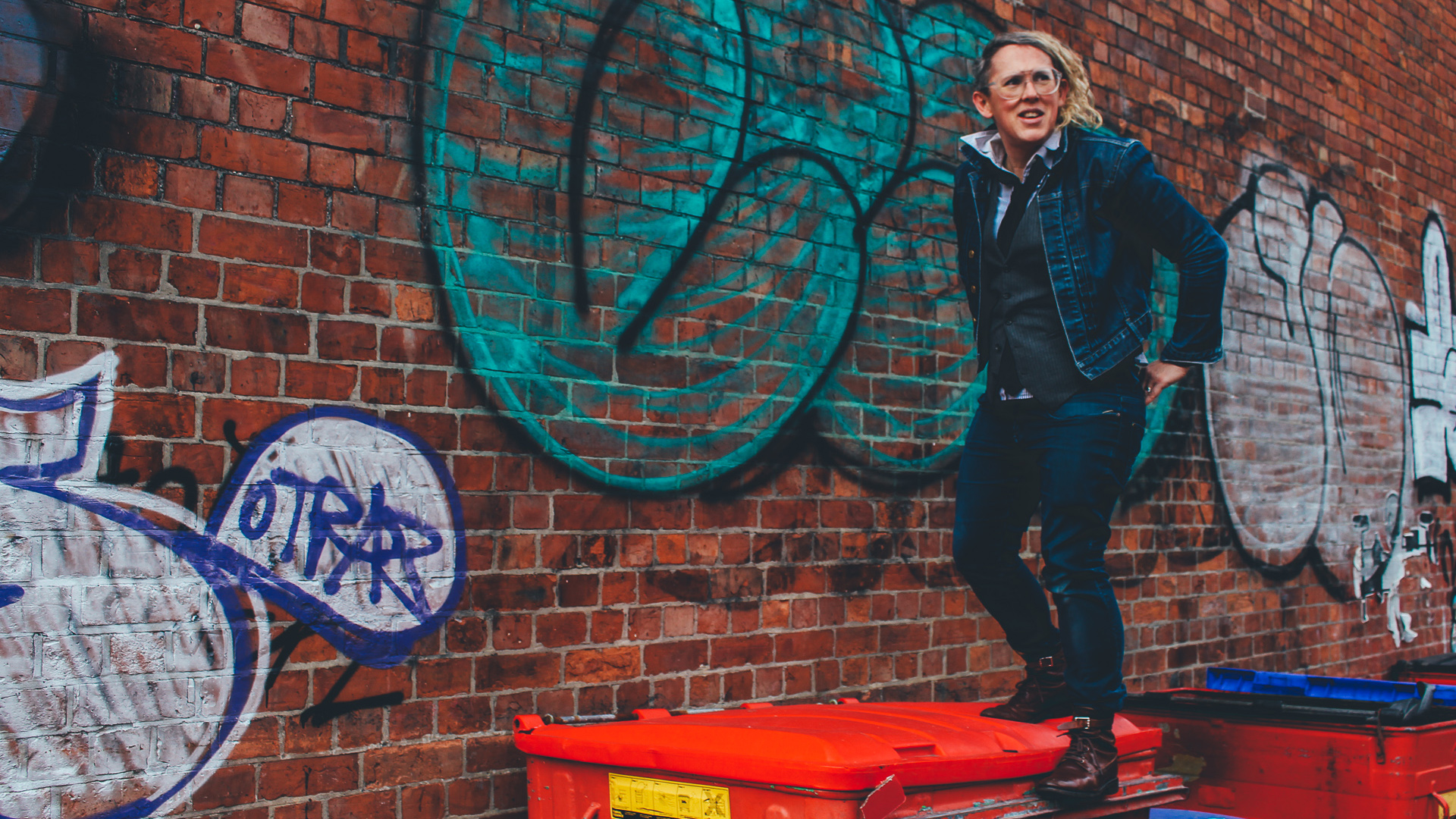
Jacquey landed in video games by accident. She grew up in Brittany, France, with a “privileged intellectual background.” Her parents weren’t rich but read omniverously, and gave Jacquey as much attention and openness as she needed. When she was 10, her father bought a 16-color Amstrad CPC6128 computer, partly for Jacquey and her siblings, and partly for himself. Jacquey, fascinated by creating things, signed up to a weekly coding fanzine from French video game company Loriciel, copying lines of code from the pages onto the PC. She became instantly obsessed.
“I played a lot, but I coded more,” she says. “I very clearly remember the first line I typed… I closed the brackets and pressed return, and a blue border appeared. I very clearly remember this as magic. Coding [is the] most performative language, as performative as God saying, ‘Let light be,’ and then light is here. It’s an incredible feeling of power and creation.”
She spent four years making simple games with three or four parameters, fiddling with code snippets from her fanzine. But after 14, her memory of video games, and of coding, goes blank. “I guess it became an issue with my studies,” she says. “It disappeared from my life. I forgot I had even played [games].” She only remembered her love of the medium when she saw a Ubisoft employee using a CPC emulator a decade later.
But before she joined the French video game giant, she went to ESSEC, one of Europe’s most selective business schools. “I did it a bit by chance. It was never really a plan,” she explains. “On my first day the dean of the university welcomed us in this big amphitheater, and he said something like, ‘You are the elite of France.’ I [walked out]. It was like, ‘What are you saying? We’re 19!’”
ESSEC wasn’t perfect, but it changed her life. She had no appetite to travel, but an exchange to Gothenburg, Sweden, ignited a passion that would later take her around the world. The winter was harsh, and the sun went down at 2 p.m., but it was her first real contact with another culture. “I just loved the idea of having to rethink what you thought was true, or right, or good,” she says. “It was [my] first contact with feminism. I didn’t even know it was a concept—I had not even read Simone de Beauvoir.”
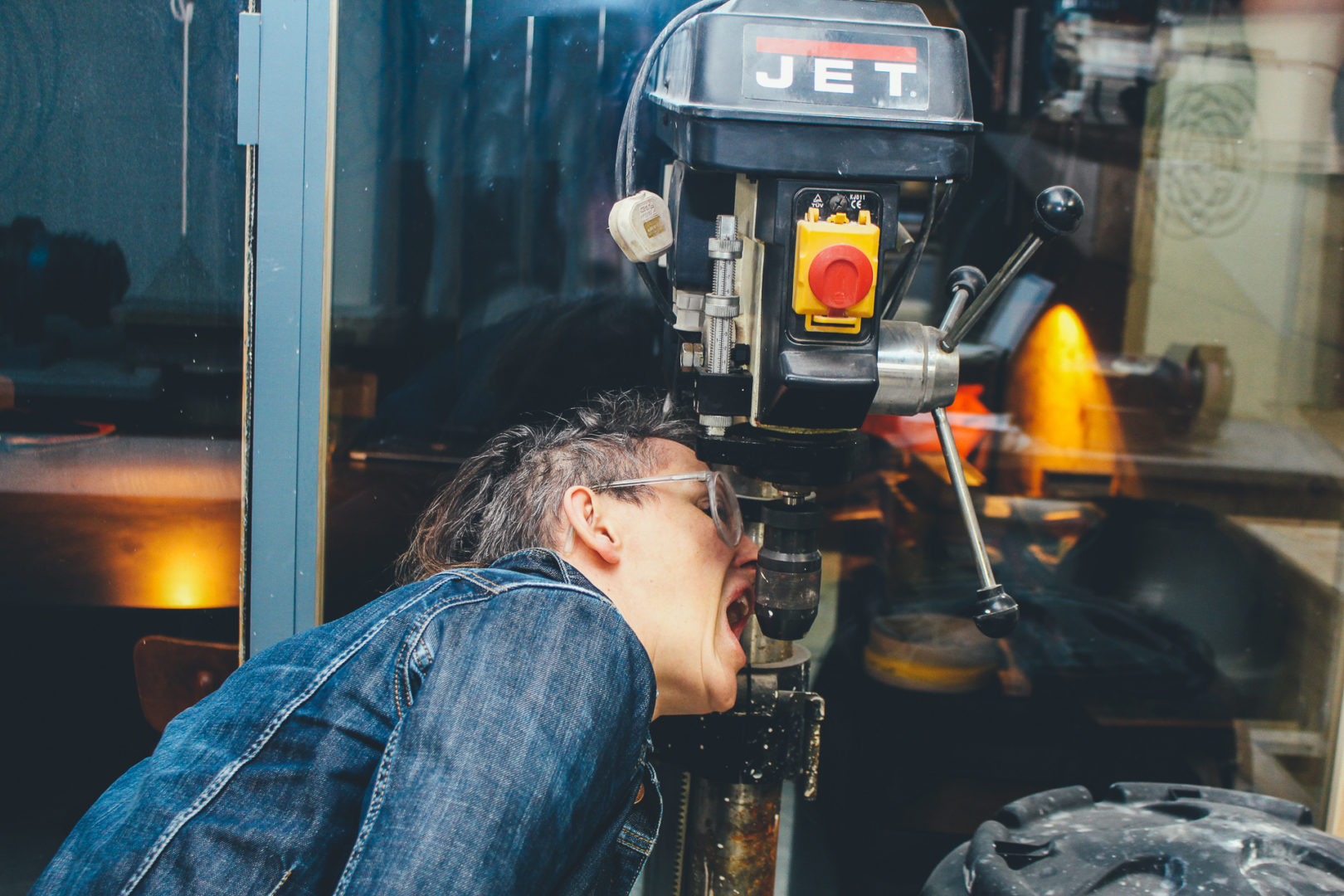
Between ESSEC and Ubisoft came an internship at a Christian newspaper called Le Croix. (Jacquey was raised a Catholic and still considers herself one—“a concept that feels better when the Pope is not Benedict XVI.”) She spent her time “filling up databases, smoking cigarette after cigarette.” Next up was an educational TV company that measured audiences via a box in their homes. Every time a viewer went to the bathroom and stopped watching, they pressed a button. “My major was in statistics… Our sample was maybe 25 families, and whenever anyone was having a leak we’d make editorial decisions. I was like, ‘Guys, stop it, stop looking at the figure, it doesn’t mean anything.’
“And then I answered a little ad of this company I thought I had never heard of: Ubisoft.”
It didn’t click with Jacquey that, a decade earlier, she’d played Ubisoft’s games on her family Amstrad—and at this point, she still hadn’t remembered her love for video games. But she enjoyed her job interview, where she met four of the five founding Guillemot brothers. Everybody seemed so smart, she recalls. She hadn’t yet finished her business diploma, but she immediately quit it—to her parents’ displeasure—and started the following week: Ubisoft’s 1001st employee.
As assistant to Gérard Guillemot, her role was wide-ranging, which reflected the chaos around her. “Nobody had an idea about what they were doing. Things just happened,” she says. “[It was] messy and chaotic and garage-like, which was exhilarating. I loved it. My job was as much collecting people’s [transport] cards at it was to discuss the yearly business plan with my boss. When it came to collecting cards, I was on my toes, I knew what to do. When it came to discussing the business plan, I was [just] nodding.”
She had her first “eureka moment” when she saw a colleague playing Jet Set Willy on a CPC emulator. “‘Oh, I know this!’ It was the first time I was connecting the fact I had chosen to work in a video game publishing company with the fact I liked video games,” she says. She increasingly offered unsolicited advice to developers—part of her “judgmental” nature, she says, and she’s sure she came across as patronizing.
People complained, and so Guillemot, as a “punishment,” asked her to practice what she preached by making her a project manager on Rayman 2. Her second “eureka moment” soon followed. The development team was spread across different levels of the Paris office: programmers on one floor, artists another, designers a third. It caused confusion. “It’s like cooking a rice salad, asking somebody to bring the tomatoes on a Monday and the rice comes on a Friday, and the water comes a week later.”
She told producer Greg Gobbi, now vice president of product development at Epic Games and a friend of Jacquey, “Greg, it doesn’t fucking make sense.” It was her job to put that right. She restructured the teams using principles she still evangelizes today: smaller groups of developers with specific expertise, sitting together, working with freedom, aiming at a common goal that feels tangible.
Rayman 2 brought many firsts for Ubisoft. It was the first time a team built an editor that sat between the game engine and the game itself. The tool came from intern Sebastien Morin, now a Ubisoft designer, and was simple enough for non-programmers to use. It planted the seed for user-generated content, Jacquey says, which is now a staple of the company’s work. (Far Cry 2 and its sequels, for example, shipped with map editors, and Assassin’s Creed Odyssey has its custom quest creator.)
It was also the first time Jacquey remembers bringing potential players into the office to test games, which helped adjust Rayman 2’s spiralling difficulty. “It was playable by a very good team of Ubisoft level designers—that was it. And every day passing was making the game harder. You don’t want to get bored in your own job, so you… create your own challenges,” she says. Children were sat down in front of TVs with controllers, and designers watched over their shoulder as they tried, and failed, to beat a level.

“I don’t want to outsource my life. I don’t want somebody to cook for me and put it in a box and then I buy it. I want to cook.”
When Rayman 2 shipped, it was Jacquey’s first real taste of success. The team didn’t track sales, but they read reviews, and could sense the “general vibe” within the company. “I have an ambiguous relationship with success. I think we’re just too obsessed with it… I don’t think any kind of commercial success replaces the joy of achieving something you had in your mind months and months ago. Or even something you thought was impossible… and then you’re part of this. It’s very rare, it’s very nice.”
After Rayman 2, things moved quickly. Jacquey heard—or rather, overheard on a phone call—that her boss was moving to New York to launch a new office. New York was one of the cities she wanted to live in and, not one to miss an opportunity, she immediately stuck her hand up. “I want to go!” she told Guillemot. Soon, she was on a plane to Manhattan with a small team that would work on a Disney Tarzan game with Ubisoft Montréal, founded two years before.
It soon became clear the setup didn’t work. “It was a team just out of uni from New York… brilliant guys… working with French heads, conceiving a game that was then supposed to be developed in Montréal. With hindsight, you don’t do it,” she says. Montréal was streets ahead of the New York studio in experience and expertise, and “didn’t see why they should follow orders from a team of graduate New Yorkers,” Jacquey says. “It totally collapsed.”
Soon, the conception team, of which Jacquey was the head, moved to Montréal to join the production team. But Jacquey, single and 24 years old, hated the place. She resented having to leave New York, a city she’d moved halfway around the world for, feeling as if she’d “been ripped from the chance of living in Harlem” where all her friends were.
At the first opportunity, she moved back to New York. “I shipped half of Tarzan [in Montréal] and left like a thief,” she says. “It was really bad. I had no closure, I waited for somebody to replace me… I don’t even think I briefed her on the project. The team in Montréal were angry at me, and they should have [been]… I didn’t dare to go back to Montréal for years. It was a really bad ending, out of cowardice from me, a lack of understanding.”
She felt guilty, but she’d learned a lot from working with Disney, she says. “Working on a license is a bit low in the food chain. You’d rather do your own creation… but from a team talent development standpoint, working on a franchise is brilliant,” she explains. “Disney [has] a century of thinking through what is valuable and what is not, it’s really interesting.”
In New York she worked on “masterpieces”—tongue in cheek—such as Magnum P.I. and Crouching Tiger, Hidden Dragon licensed games. The studio closed shortly after.
Shanghai was Jacquey’s next stop—a “non-job,” she says, which she lists on her LinkedIn as “can’t remember, but it was fun though”—before returning to Paris. The freedom to move between countries is one of the things she loves most about Ubisoft, where you’re allowed to switch offices once you’ve worked for two years.
“You won’t make loads of money out of this… but it’s a way to progress in terms of experience and knowledge,” she says. “You need to share your expertise when you move to another country. You won’t be paid more, but it’s part of diffusing the culture of the company as well… it’s creating a bit of a neural network.”
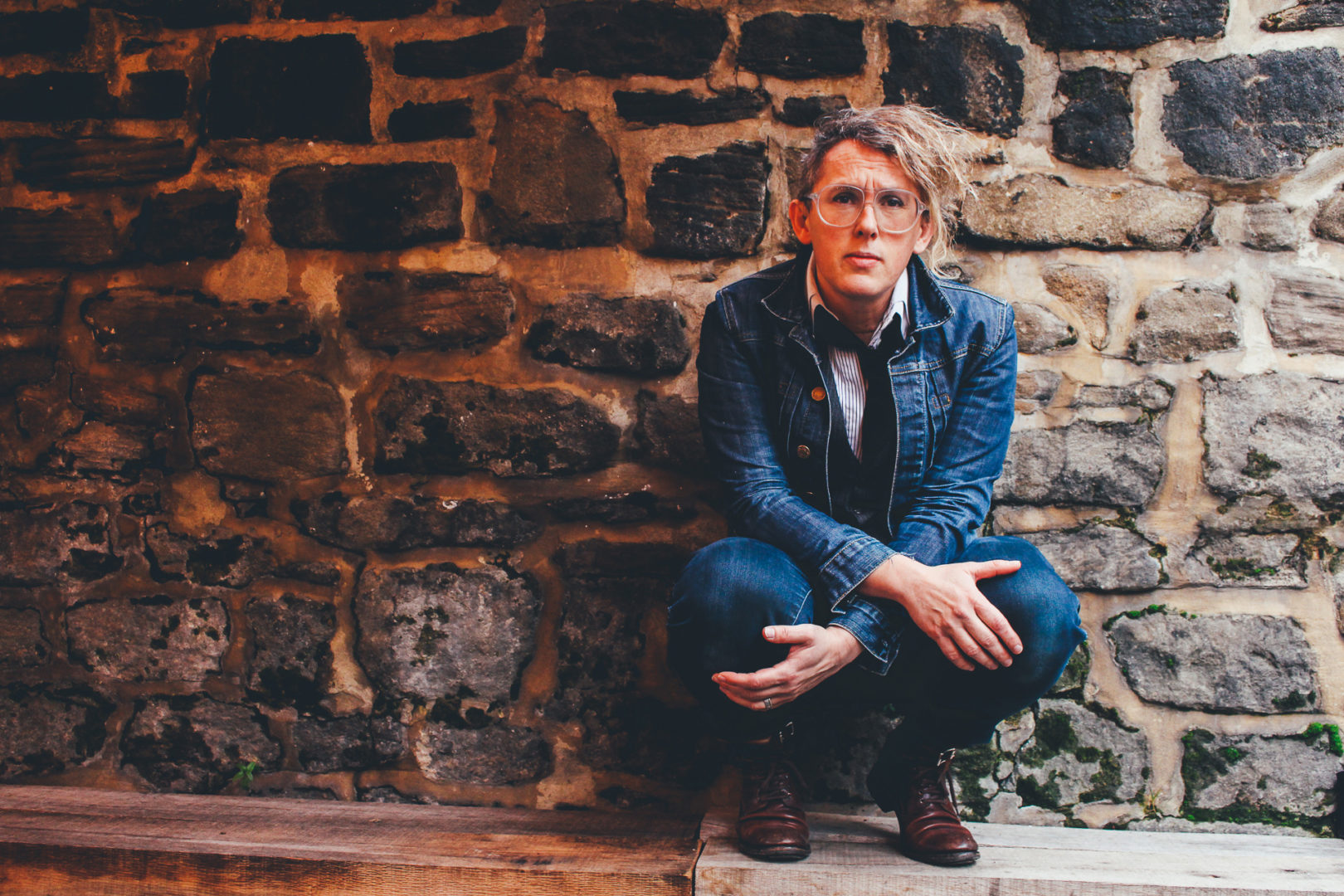
Post-Shanghai, back in Paris, Jacquey worked on a game she says nobody has ever talked about outside of its development team. It was an co-operative heist game called, imaginatively, HEI$T (the dollar sign was her idea, “to try to sound cool”). The game sounds a lot like Payday, which wouldn’t arrive for nearly a decade.
“It was very influenced by Michael Mann movies, specifically Heat, with firefights that were thought as choreography,” she says. HEI$T had four-player online co-op, and players would invite each other to missions using an in-game cell phone, an idea from designer Mickael Janod. “Suddenly it becomes incredibly intuitive. It’s mass market.”
While the cell phone worked, other design choices were less successful. Players had what Jacquey describes as “hyper-realist animal heads,” an idea borrowed from a Levi’s ad directed by Michel Gondry and not backed by any lore in the game world. “We just loved the idea that it was not humans being in this. But we didn’t have the creative maturity to think that it needed to be part of the universe. It just happened,” she says.
Ubisoft CEO Yves Guillemot wasn’t impressed by the decision, later asking Jacquey, “What’s on their head?” The game was canceled, and not just because of the animal heads. The main issue was timing. It was 2001, between two console generations: The PlayStation 2 wasn’t yet released, and the PS One was in decline.
“2001, in [the whole] video game industry in France, it was a really turbulent time… so it created a general landscape where you couldn’t take a lot of creative risk.” Jacquey had announced at the start of the project that she’d leave on sabbatical when the game reached a certain stage, which didn’t help matters. “I would not do this today again.”
Her sabbatical was overdue: She can usually work “really, really hard for two or three years, and then I need a break.” In France, companies couldn’t refuse if you asked for 11 months off, so that’s exactly what she and her girlfriend at the time did. They planned an epic drive, from their home in Paris all the way to Bangkok. They stripped the electronics out of a Toyota Land Cruiser HJ60 station wagon so that any serious problems would be easier for a mechanic to fix, but Jacquey also learned the nuts and bolts herself so she could patch up the car if needed.
With a tent, clothes and medicine in the back, and a daily budget of just $33, they set out, driving up through Norway to North Cape, and then down through Russia, passing St. Petersburg and Moscow on the Trans-Siberian roads. She left the region feeling underwhelmed. “It’s a derelict area with all the candor of the past still there in the spirit of the people. It’s literally grandmothers gathering blueberries and mushrooms and selling them on the side of the highway. It’s survival,” she says.
“I tried a joke with a Russian policewoman who was looking through the back of our car. We had created a space where we could store clothes, food, and drugs—as in medicine. And we’d sleep on top of it. She was looking through all the bottles of paracetamol and stuff, and I think I made a joke about being a mule, and drugs being there. I immediately regretted it, and I felt she was that close to punching me.”
They carried on via Mongolia and China, through Laos, to Thailand, where they sent their car back on a boat (Jacquey took out a loan to pay for the shipping, and wishes she had just sold the car instead). Mongolia, in particular, was an eye-opener. The huge country had only around 1,000 miles of paved road. The rest were informal, winding paths in the volcanic stone. Several times, the couple burst a tire on a jagged rock, but fortunately they’d hired a guide car to take them through the Gobi Desert.
The guide was a life-saver when, in the middle of nowhere, the two terminals on the Toyota’s car battery melted away. “There’s nobody. You can literally wait four days before somebody comes,” she says. “There was one Buddhist monk walking on the dunes, but he couldn’t really help.”
Their guide sprang into action. “At 5 a.m., we go for a walk looking on the ground. And it’s dust, there’s no road, there’s no trace of human presence. It’s a country where there’s no electrical posts, exclusively wilderness. The state of the country is like it was in the 13th century or before. It’s incredibly beautiful.
“[The guide] picks up super tiny bits of scrap metal… and then on our saucepan with our little camping gas [stove], we melted this. And then he took a tube that he had—of course, the right size—and then he melted the aluminum on top of the battery. Then it was okay, and the car could go on.”
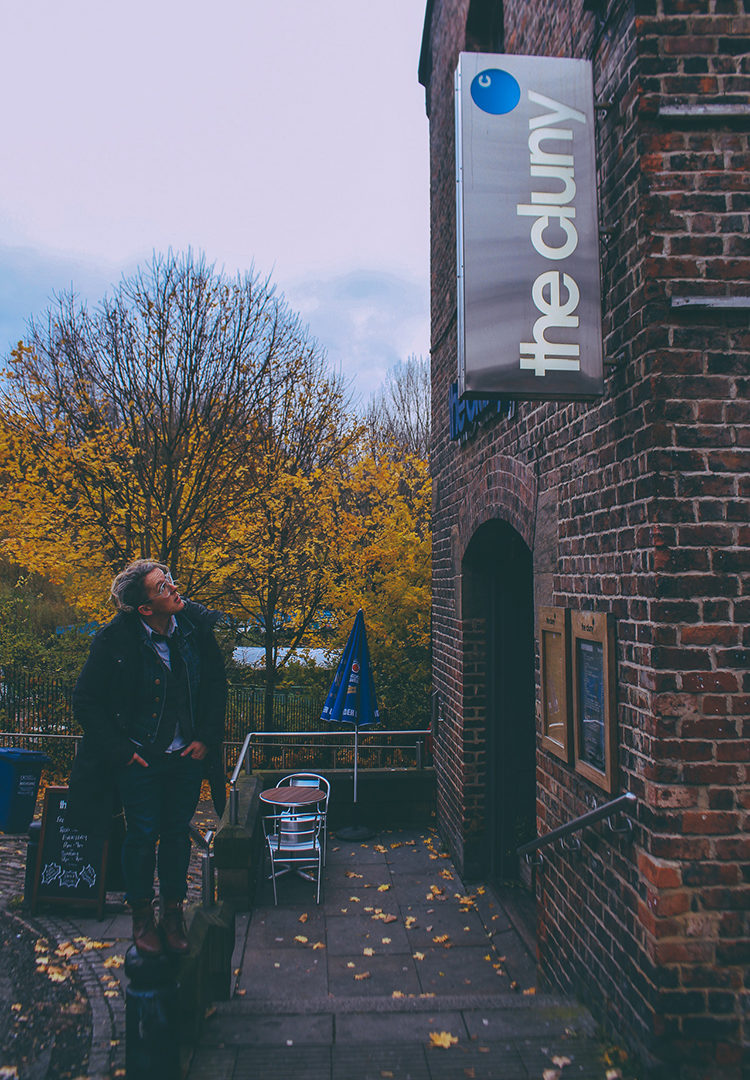
She read around 100 books during the trip, and was often bored, a feeling she enjoyed. Her relationship with food changed, too; in Mongolia, all she could buy to eat were boiled goat’s legs, skin and hair and all. She couldn’t stomach it, so instead she and her girlfriend fished for their dinner. She developed a love of the wilderness, and of environmentalism. “I like the idea we just take our own spot, and space, and not more than this,” she says. She felt completely different about the natural world afterwards, and about the lifestyle she was living back home.
“You see the rain from really far away, you see a storm and you avoid it… for me, it’s real freedom. Freedom not because it’s an absence of constraints of hurdles or suffering, it’s freedom because you rely on your internal resources to do whatever you want, even if what you want is just finding your way or cooking,” she says, a sentiment she would later echo when talking about her 2017 burnout.
“There’s a very strong feeling of accomplishment. I don’t want to outsource my life. I don’t want somebody to cook for me and put it in a box and then I buy it. I want to cook. I love the idea I rely on myself and people around me instead of relying on outsourcing things.”
She also felt “much more single” when the journey was done. “It’s an advice I can give to anybody: If you’re tired in your relationship, just go on an 11-month trip in the same car… It’s a distillation of life, you’re so close together, no way to get out. Everything you see is immediately shared by your partner, so it’s not like you go away for one week and you come back and you have things to tell. You need to be in a very strong relationship, or really bored with the other [person] so it doesn’t bother you. So it didn’t work out.”
As much as the journey changed her, it was a highly “passive” experience, she says. When she finished, she wanted to apply herself: She desperately needed a project. Her Ubisoft salary negotiations were quick—“Just give me anything, okay, yeah, alright I’ll do it”—and she took a role producing Ghost Recon Advanced Warfighter, the 2006 tactical shooter.
It was a complex co-development setup. The game’s creative head was in Montpellier, the single-player campaign was built in Paris, and the online portion was handled by Red Storm, Ubisoft’s North Carolina subsidiary. “Montpellier and Paris—it was really hard for them to work well together,” Jacquey says. Why? “Take any people who don’t know each other, make them work remotely: It’s complicated.”
To set the project straight, she applied what she’d learned on Rayman 2. She created groups with full control over their segment of the game, giving their members a sense of “belonging and achievement and agency,” she says. She made sure staff were gathered by expertise, and given “graspable” goals.
For example, she created one group of developers specifically looking at the game’s characters. Instead of direction flowing from the overall art director through a sub-director to the head character artist, a distinct team was given full control of the characters and had to take into account their animation, their place in the universe and lore—the whole thing. These teams were “atomic, isolated,” and that’s the way she wanted it. “Instead of the work being split by task… the work is split by components that have value for the player, and are being done by experts… Suddenly, you’re not in a big machine, even if you have 500, 600 people.”
While in Paris, Jacquey continued the “second job” she’d been doing for years at the company, as a “shrink for teams.” She’d always been good at bashing tough projects into shape and resolving conflicts, and Ubisoft called on her when teams were in internal conflicts over split visions, or when groups in different departments clashed. Often, both sides knew what needed to be done. They just needed someone external to come in and do it.
It happened with teams working on Assassin’s Creed and Rainbow Six games, she says, and most of the time it stemmed from a lack of communication. “And because I talk a lot, and I don’t really care about hierarchy… it’s kind of creating an even playing field to put out topics. I’ve done this for so many years that now I’m kind of trusted. Ninety percent of the time, I’m just a messenger of what the team thinks should be done. I just say it in an articulated way, really loud, to everybody at the same time.”
As the studio shipped GRAW, Jacquey moved onto Games for Everyone, a new Ubisoft initiative aimed at casual and social players. It relied heavily on the Nintendo DS, a platform that was pummeled by piracy, Jacquey says, which affected the department’s growth. It lived on, but Jacquey didn’t stay there because Ubisoft had just acquired a studio in Pune, south of Mumbai.
She’d always wanted to live in India, and, just like with New York, jumped on the chance, leading to some of the best years of her life helping to develop the talent pool. “Just two days ago, a 3D artist who I’m vaguely in touch with, he sent a video to me on Facebook of me dancing at a Christmas party with him, in slow-mo. It’s really ridiculous. I was so happy to see this, it’s a lot of good memories. The team there, they’re super loyal, they’re extremely friendly.”
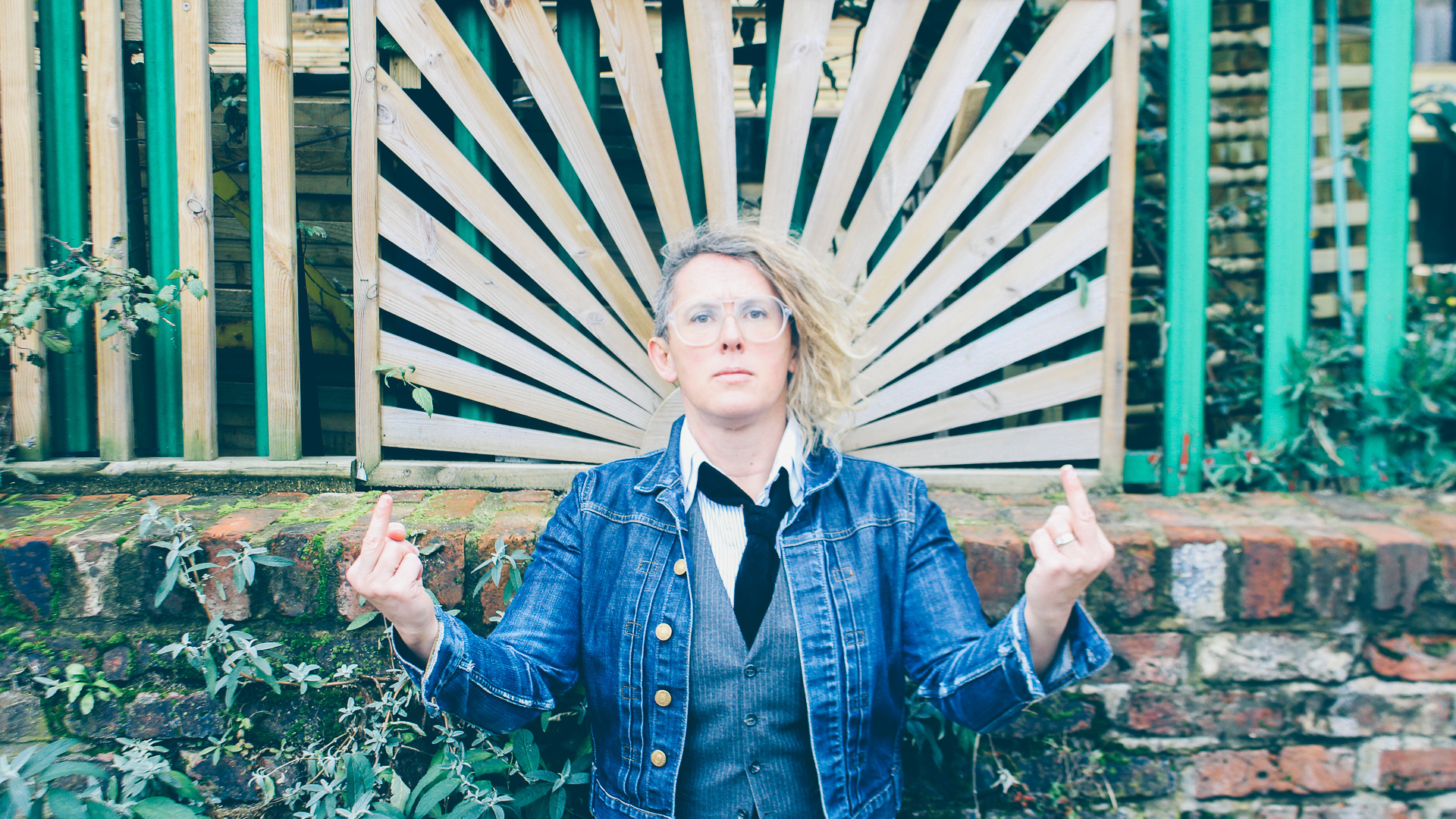
She stayed for three years, and might’ve stayed longer had she and her wife, Anne, not decided they wanted kids—something that was out of the question as a lesbian couple in India. Her dad had also recently passed away, and she wanted to be closer to Europe. But not in France: She wanted to keep a bilingual life.
The managing director of Ubisoft Reflections had just quit, and head office wanted Jacquey to take the role. But she wasn’t so sure. Most of what she knew about Newcastle was from stereotypes: “football fans and bad weather.” She had, however, visited 15 years ago when Ubisoft bought Reflections, and recalled walking the streets thinking, “I could live here.”
Ubisoft knew they couldn’t force her to take the job. Instead, her longtime boss, Christine Burgess-Quemard, tried to convince her. “She can never let go. And I think she called me six times, and asked me six times… She was like, ‘Pauline, it’s the North East of England, you can do your band, you can play music, you can sail… You will love it.’ And she actually knows me really well, so it was nice.”
Jacquey gave in, on the condition that she was there for “two years, not more.” She loved it so much that she’s still in Newcastle, seven years later, and is only leaving later this month because Anne has landed a job at Ubisoft Music, the company’s internal music label, in Montréal. “[Newcastle] is a lovely city… It’s a very understated place, there’s nothing spectacular about it. But living here from a human experience is really lovely. [People] are really warm, a really strong history as an area, as a city. It’s a place that’s very rooted. That’s super important to me.”
While we’re talking, we both order food—we share a large platter of vegetables, hummus and cheese, which she barely eats, saying she performs better on stage when she’s hungry—and she comments on how she doesn’t like British cuisine. But British music is a different story, and she lights up telling me about the bands she’s seen recently. “I don’t think British people [get] how much better they are at creating music than the rest of the world,” she says. “Honestly, forget about food… local bands in Newcastle playing in front of 20 people are on average better than most of the bands I’ve seen in Paris playing in front of 2,000 people. It’s really very special.”
For Jacquey, looking back on her time at Reflections is difficult. It’s hard to disentangle the good times from her burnout, she says. But she hopes that, as managing director, she showed the team how to retain their independence and culture while remaining part of a large company. “I hope they feel today this: that they have the freedom to do what they want to do, with the support, more than the constraint, coming from Ubisoft.”
When burnout hit Jacquey, it was sudden, and unexpected, and has no doubt shifted the course of her entire career. “One morning I woke up, video games are unbearable, working at a company was unbearable—working is unbearable,” she tells me. “Technology, unbearable, the space it takes in my life. And all of the 21st century is unbearable.”
It’s clearly difficult for her to talk about. Jacquey is a warm, open person: Within minutes of picking me up from the station she’s talking about her family, and of the area’s politics. But as we sit down to coffee, she says she doesn’t want to discuss her burnout, saying only “bitterness” will come from it. Later, she tells me that the experience “didn’t make sense.” She’s never suffered from anxiety, and wasn’t stressed by work—she had a much better work-life balance than ever before in her career.
But then she digs down into the feelings that all, without warning, hit her overnight. First, the sense of how “artificial” it was to care about a group of people that were gathered because of a corporate objective. “You belong to this group, you belong to this company, it’s a very abstract construct, and I was in charge of this. And I was like, ‘No, I want to be in charge of my cousin who doesn’t feel well, my neighbors,’” she says.
It also stemmed from “witnessing the general state of the world” and particularly how widespread and untamed technology was within it. Constant access to information felt “overwhelming” and “impossible to close your eyes” to. “[If you] want to dig, it’s a bottomless pit of how bad it goes… It’s about navigating between my internal optimism and realism on the state of the world. And for me the solution is local, not global,” she says, her eyes welling up. “For me the solution is trying to be the best human being yourself, with your friends, with your group of people you work with.”
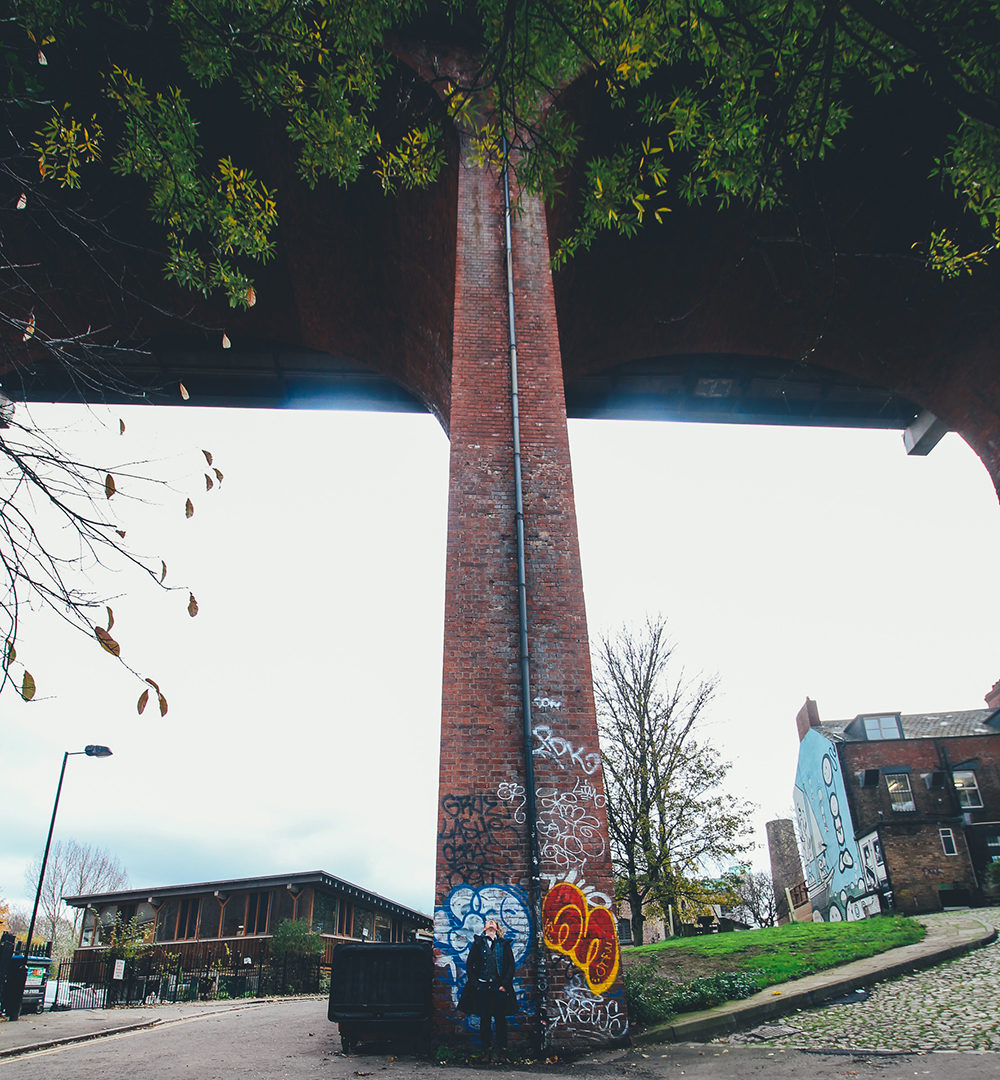
Many of the things she enjoyed during her isolated 11-month drive come up, too. She talks again about not wanting to “outsource her life” to technology, or to other people. It didn’t help that she worked with technology every day, she says. “I know how it’s done. It’s the same thing as in the Bay Area and Silicon Valley, all the parents who work for [Google]. They don’t give phones to their kids, when you know how it’s done.”
These were not necessarily new feelings, but they all bubbled up that one Monday morning, leaving her with an overwhelming sadness, and a lack of purpose. She compares it to having celiac disease: “For 40 years you eat gluten, everything is totally fine, and one morning if you eat just a bit, it’s unbearable.” She says she was suffering from other health problems at the time that likely contributed, too.
The effects or her sudden burnout were crippling. She left her job immediately. She cried six hours a day. At first, she tried sailing to take her mind off it, but she just ended up crying in her cabin. Ultimately, it took both time and counseling to arrive at a place where she had control. She read a lot of astrophysics books, she says. “Seeing how little you are, for me, it’s a solace to see you have nothing… The immensity of it, for some people it creates anxiety, for me it’s very reassuring.”
She had a false start six months later when she began reaching out to Ubisoft employees to discuss her options. “People were really happy and glad… and then they started talking to me about [projects], and I was like… I couldn’t do it, impossible.” At that moment, she considered quitting altogether. She realized she couldn’t merely make small adjustments to her life; she needed wholesale changes, and she needed to turn her experience into something positive.
“I’ve read a lot, I’ve paid a lot of counselors, and I’ve cried a lot… When there’s entropy and chaos and crisis like this, what comes out of this, most of the time it’s creation. If you manage to get this and sublime it into something that’s positive, I think I’m much stronger emotionally. And I look at burnout very differently to before.”
The key moment came when she was discussing with her counsellor what she’d do if she didn’t have to work again—and realized that it was possible to do it within the scope of Ubisoft.
In that instant, Ubisoft Talisman was born. It came from a desire to be surrounded by art, rather than by commercial products, and Jacquey has been quietly working on it for a year. “People have seen me disappear from Ubisoft, I was [this] close to quitting, and this morning we’re announcing internally that we’re inviting artists to come in residence within our Ubisoft sites… Friends who thought maybe I’d committed suicide were like, ‘Oh, you actually still have a job.’ It’s exactly what I need now.”
The premise is simple: Ubisoft will host artists, poets, musicians and sculptors in its offices for between six and nine months, providing a grant to fund their work. “People [who] have decided when they’re 17 or 18 years old, they’d do a job that doesn’t pay, that they’d really struggle, but they can have obsessions and really think in a profound manner about topics they want to articulate visually or emotionally,” she says.
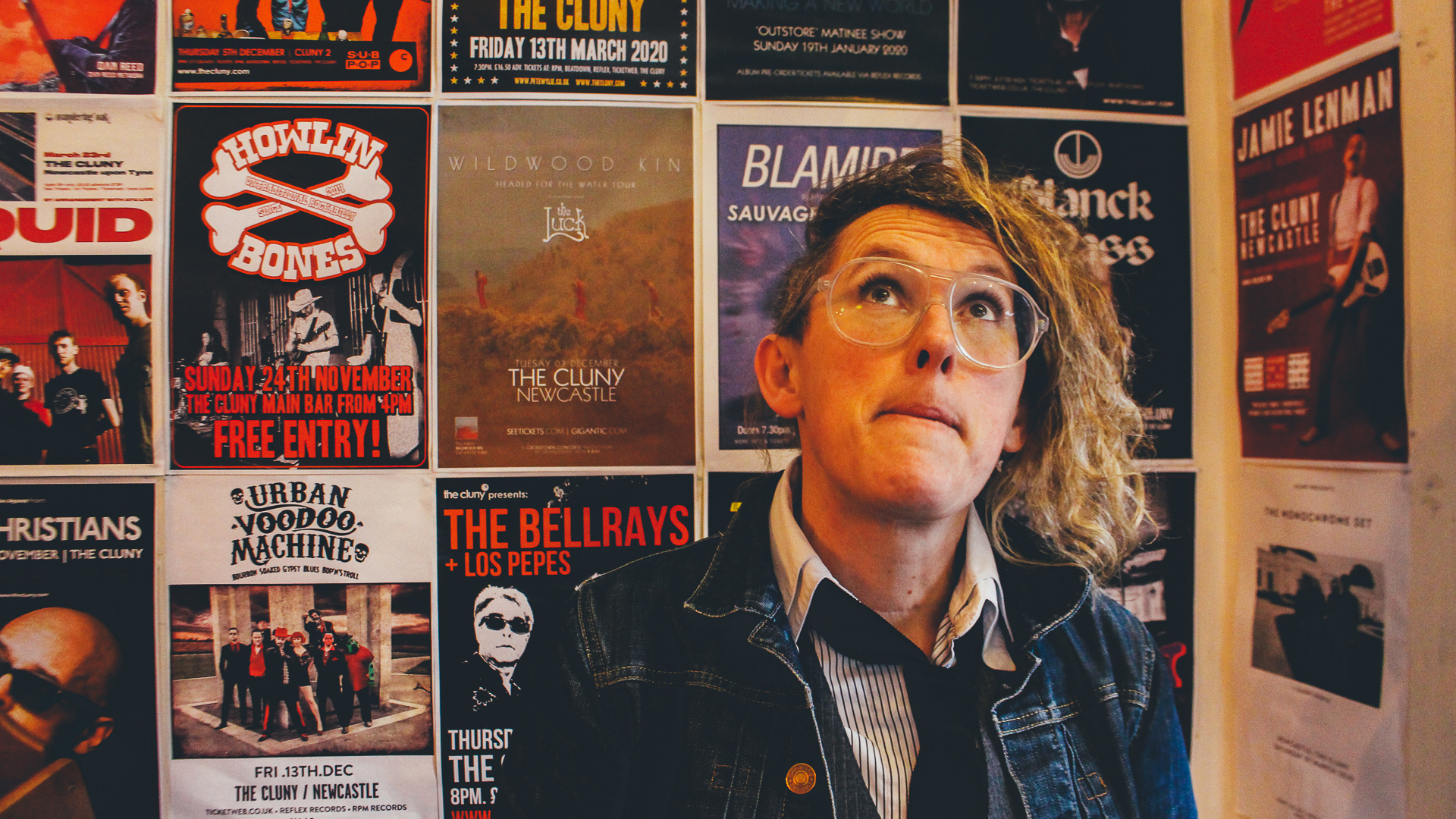
It’s by no means a unique initiative, Jacquey admits, but what makes Talisman special is the freedom its artists will have. They can use any and all of Ubisoft’s technology and tools: the company’s visual assets, its production methods, even its corporate Twitter account, and Ubisoft employees will teach them the ropes. “It’s a bit punk. And there’s an area of risk, of course, which we’re embracing,” she says.
There’s no restriction on the artists’ interests—they might come to Ubisoft to simply paint flowers, for example—but Jacquey assumes that many will be interested in the themes the company tackles in its games: morality, the nature of winning and losing, what it means to be a hero.
“It’s very hard to treat them as philosophical themes in the video game industry because it needs to be an entertaining product, and because there’s a lot of focus on the quality of the execution, the finishing and the polishing. At one point, the big question you ask yourself in conception are diffused in the execution of it. It’s hard. Most teams have an interest in those topics, but it’s harder to infuse this in a video game than it is in a sole piece of art.”
Talisman could change that, providing a space where developers can think deeply about those themes. “It’s inspiration, it’s creating a space for self-reflection… creating a margin where anything can happen, because what’s at stake is very different to what’s at stake in your career, your job.”
Jacquey says she wants to be running Talisman for the rest of her life, but that it should remain “modest.” Currently, four or five artists have started or are close to starting their residences, including in the Abu Dhabi, Red Storm, and Lyon offices. That’s a good size for her: She says it’s the smallest budget she’s ever had, but that’s why it’s exciting. “I love the idea you just do things with limited means and high ambition.”
She picked the name Talisman because of its association with magic, she says, and of its healing properties. She doesn’t say it explicitly, but it’s hard not to think about the project in the context of her burnout. Talisman is her route back into work, and could help heal the scars of the past two years. “Talisman usually have demonic figures in them, and something I believe strongly, it’s our ability to manage darkness that makes us good people. It’s not a quest to purity… It’s taming and transforming negative impulses into something that’s positive,” she says.
Would she ever go back to development? “I might, yeah. I’m feeling more and more okay with it. It’s like the gluten allergy is maybe fixed, I don’t know. I think I could go back to development.”
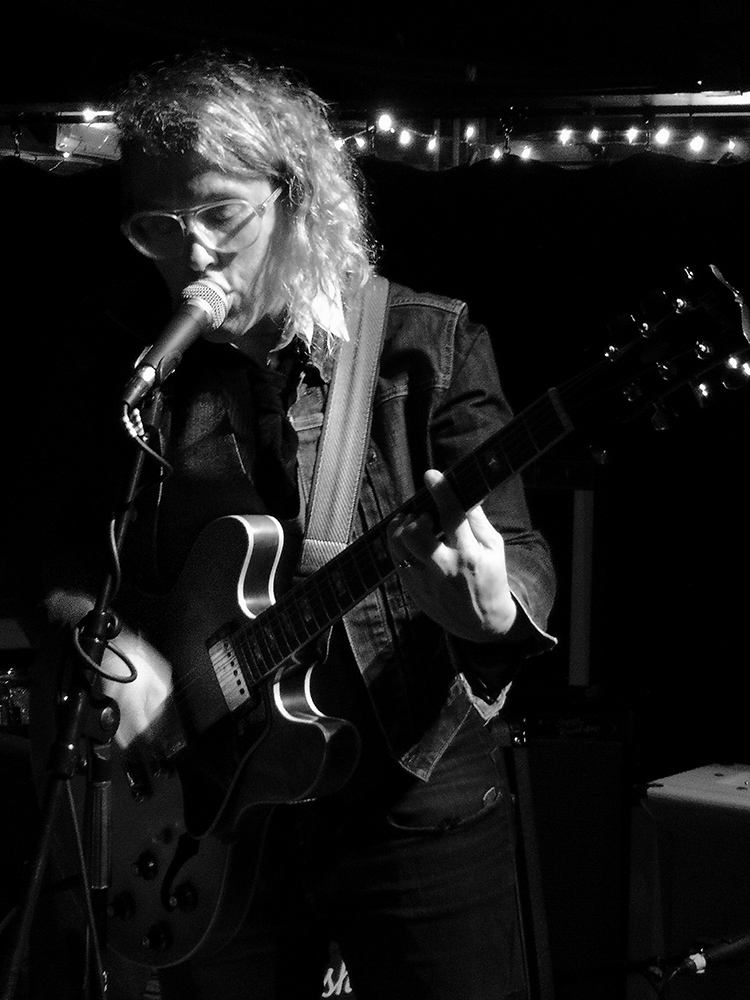
Courtesy Chris Trew
For now, however, her focus at Ubisoft is firmly on Talisman. Jacquey will work on it every day from her new home in Montréal’s Plateau neighborhood, but only part-time, leaving her space to build her band.
“I need time to have a punk rock band. Regardless of your commercial success… it takes the same time to gig and record. I’ve just printed the sleeves of our first vinyl. We just released a 7” vinyl… and it took me six fucking weeks to print 30 sleeves, we’re selling 30 copies, and it’s so long. So right now, it’s very important in my life, as important as my job, so I want to keep it safe.”
Music has always been a pillar of Jacquey’s life, and now more than ever. After swapping the violin for the acoustic guitar at 16, she began playing bass in cover bands in her late teens, and now she and Anne perform as The Noise and the Naïve. (When I ask which half represents her, she tells me it’s a sore subject: “Let’s say I wish I was the Noise.”) They play regularly in cities across the North of England. The band was born out of “housewife misery.” After they had kids they were driven to “domesticity to a point that’s, for me, unbearable,” she says. Music was pure “survival.”
That evening, the band is supporting American artist Jon Spencer. They’re full of energy, and it soon dissipates into the crowd, who nod their heads in time to the music. Some start dancing, and between each song I hear people shouting to each other in approval. At one point, the band brings on a third member: someone I can only describe as half-Wookiee, half-tree. A person in a seven-foot-tall fur suit who can, presumably, barely see their hands, but still manages to strum out chords in time with Jacquey and her wife.
During the upbeat “Mental Days,” Jacquey’s guitar strap breaks, and the instrument nearly tumbles to the ground before she can grab it. It happens to be the band’s only song with a guitar solo. When the time comes, despite having to play bent over, balancing her guitar on her knee, Jacquey nails every note.
Header and uncredited image: Lauren McWilliams for EGM.
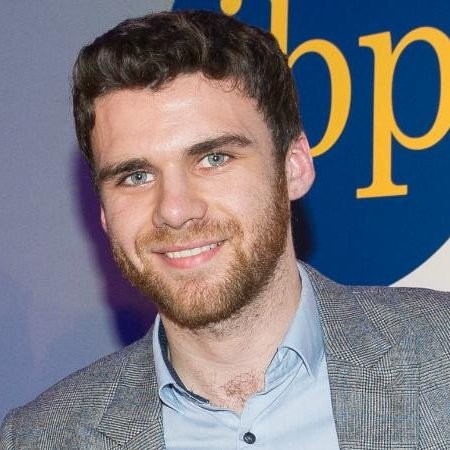
Samuel is a freelance journalist. When he first played TF2, he couldn’t work out how to fire his gun—until he read a troubleshooting guide. You can find him on Twitter @SamuelHorti.